'It's always scary to jump into any role.' 6 actors on bad scene partners and farting on cue
Every actor's path to mainstream success has to start somewhere — it could be a small role on an episode of "Quantum Leap" circa 1991 or a single line in a CW drama that gets left on the cutting-room floor.
During the recent Envelope Drama Roundtable, actors Maya Erskine, Giancarlo Esposito, Jess Hong, Carrie Preston, Amy Ryan and Morgan Spector flashed back to the twinge of nerves and self-doubt in those early years when the seemingly small roles, approached with total commitment, set their foundation — even if things didn't always go smoothly on set.
"I was cut from it," Erskine says of her first time on a set. "It was 'Hart of Dixie' on [The] CW. I just had one line that was like, 'Is this seat taken?' And I swear to you — have any of you seen 'The Comeback' where Lisa Kudrow runs her line over and over throughout 24 hours? That's what I did on Photo Booth. All night, [I] was like, 'You gonna take that seat?' I kept doing it, and then on the day [of shooting], I blanked. It was this huge machine that you're just this tiny part of and I was like, 'Oh, so there's no rehearsal? We don't do this, figure it out together? You just show up?' And they cut it."
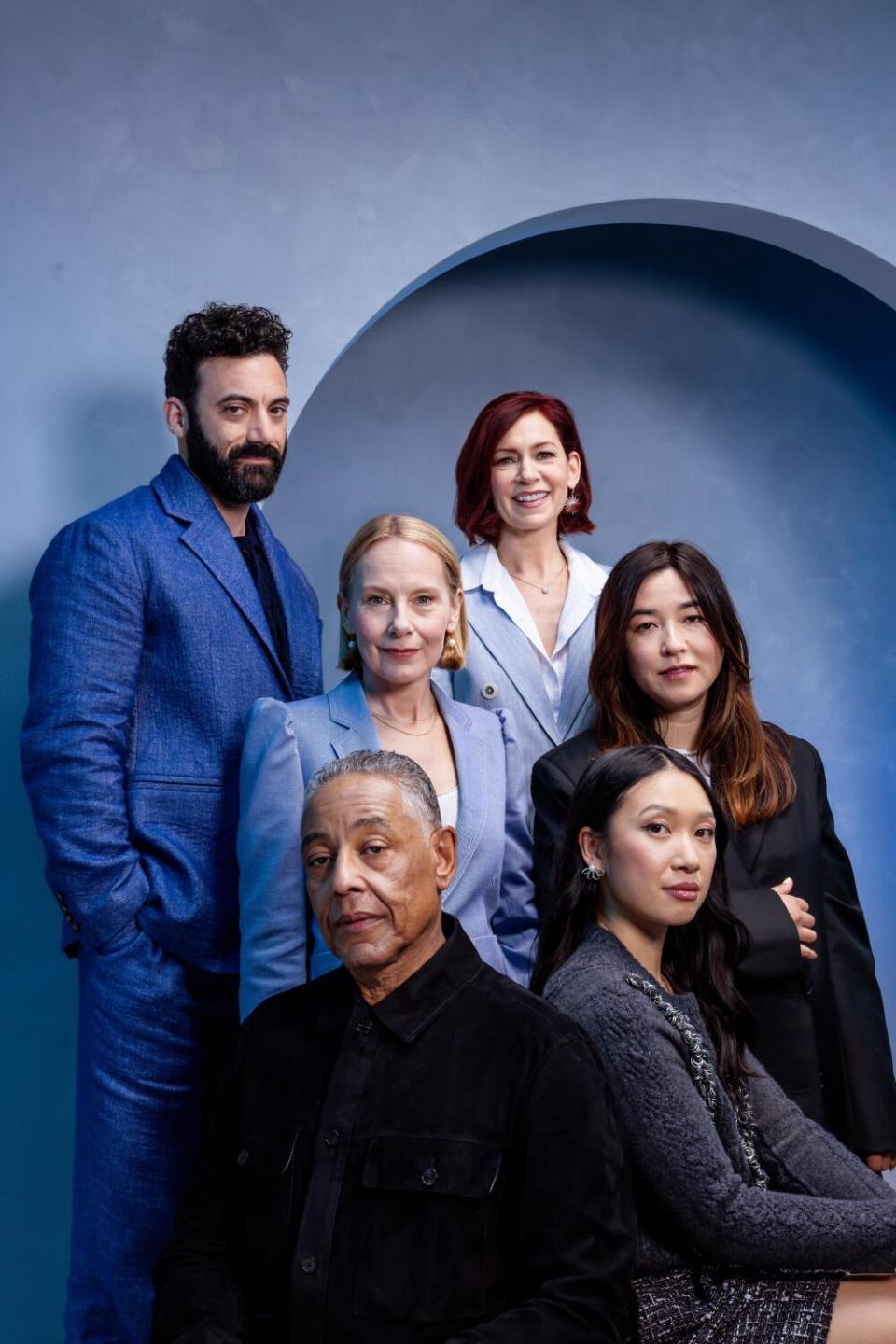
Still, the experience can leave a lasting impact, said Ryan, who arrived to the "Quantum Leap" set bright-eyed with uncertainty.
"I didn't know what I was doing, but I was so excited to be on television," she said. "If I could tell my younger self, I'd say, 'It's OK to ask a question. There are no dumb questions.' I didn't know that. I didn't know what a mark was, I didn't know what a boom was. I didn't know that you're not supposed to overlap, but this gorgeous woman, she leaned [in] and she whispered, 'That's your mark.' She gave me all the ropes of the day, and I'm very grateful to her."
The conversation on a late April day was as wide-ranging as the roles the actors brought to the screen this season: Erskine, a jaded millennial spy in "Mr. & Mrs. Smith"; Ryan, a former rock singer and the stepmother of a missing young girl on neo-noir drama "Sugar"; Esposito, a desperate man who becomes a driver for the mob in New Orleans in "Parish," as well as the obscenely rich and hyper- articulate drug baron in "The Gentlemen"; Hong, a brilliant young physicist in science fiction epic "3 Body Problem"; Spector, a railroad tycoon who rules 19th century New York City in "The Gilded Age"; and Preston, a quirky lawyer with a knack for sleuthing in "Elsbeth."

Their conversation here has been edited for length and clarity.
Maya, on paper, Jane Smith in "Mr. & Mrs. Smith" is such a dramatic pivot from the work that we know you from. Were you immediately game?
Maya Erskine: Actually, Donald [Glover, who co-created the series] talked to me several times on FaceTime, and I didn't know what it was, because I thought that it was him and Phoebe [Waller-Bridge, who was originally tapped to co-create and co-star in the series]. And so I was like, "Am I gonna get killed in the first episode? Like, what is my role in this?" And I really had no idea. And he was just kind of gauging my interest, gauging if I was the right vibe for this, and then by the third time, he was like, "Oh, no, you would play Jane Smith." And I was like, "Oh, OK." It's always scary to jump into any role, it doesn't really matter what it is, but I was excited to try it because I was ready to have a change from "Pen15." I was looking for that.
And the story goes — sorry to put you on the spot — but that you requested or suggested that your character fart in the show?
It's such a beautiful story. Well, to be fair, they were describing to me a scene where Donald's character would fart. It was all about all the in-between moments in relationships that you don't see a lot on TV. So, the first time someone farts in a relationship — what is that like? And what does that vulnerability do to the relationship? And I was like, "Can my character do that instead? Because I feel like that's something I relate to." I want to see what that would do to us. How would that make him react? How would that make her feel more exposed? And would it help them fall more in love? They were like, "Yeah, OK. You can fart."
Morgan Spector: I feel like that scene where she farts and then he covers for her by going outside and looking as if something dangerous may have happened — that was the scene where I was like, "Oh, this show's the s—. This show is up to something." It was so great. It was funny.

Have you suggested your own kind of details like that in any character you've played?
Spector: I really am the kind of actor who likes to show up and just do what I'm told. I'm very much creatively kind of a bottom, so not really. I think that's kind of what I'm in it for. "Please tell me what to do and just let me obey."
Giancarlo Esposito: I like to pay attention to a lot of the details. I feel like it feeds me when I've created a bit of a backstory, detail-wise, for the character. They're little clues for me. Those small things oftentimes help me because I play a lot of characters without a lot of words sometimes. So to me, those become really important, they fill in the gap of what the writer has maybe written in the stage direction but hasn't written in the dialogue. On "Breaking Bad," I had an elevator scene and I realized I had played this character in a formidable way. You never saw a chink in his armor. And I wanted so desperately to show that he was human and not a robot, you know?
[With the] elevator scene, it was quite chilling. My emotion was completely stone-faced and the elevator door closes, and I started to do one little thing, [tapping] my finger. My hands were at my side, just to see if the director would notice. It was for me, because it allowed me, internally, to release some energy that was feeding this idea that, finally, [Gus] was nervous. That something was gonna happen to him, and the director came in and he said, "I see that you are doing something with your hand." And I said, "Oh, you noticed that, did you?" And he said, "Yes, I want to go down there [with the camera] and get it." I said, "You go down there and you get it, baby."
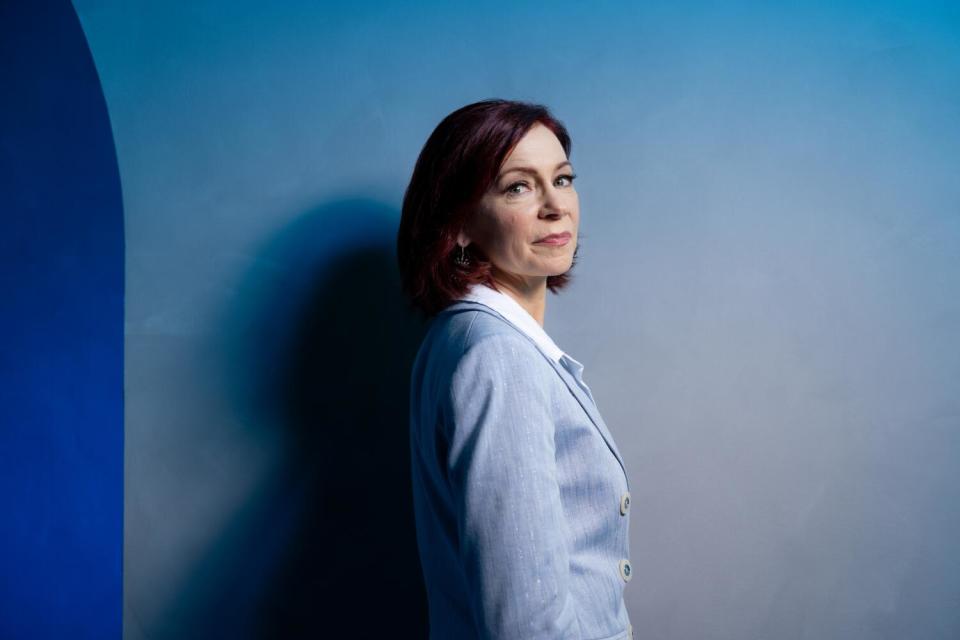
Carrie, Elsbeth Tascioni makes her debut in "The Good Wife" at the end of the first season, in a three-minute scene. And she developed into this fan-favorite character. How has it been leaning into her as a lead character?
Carrie Preston: At first, I got nervous because I was like, "Oh, no, wait, wait. I'm the side dish. I'm the funny one. I'm the quirky thing. ... They're gonna get tired of me." That was the fear; it's like, "It's gonna be too much." And then it was, "No, I just have to show up and try to solve the scene. Each day, there's just more scenes." And then also just giving myself permission to let the character evolve and not feel like I have to re-create something that I already did. It's a police procedural, so it is a drama with this circus dropped down into the middle of it, which is my character. That's fun too, because I'm able to live and breathe in it a little more. I have been able to do a lot more of a dramatic, poignant — just a deeper dive with her that was not what I was being hired to do in those other shows.
So many of you started your careers on the stage. What excites you about each way of acting? Onstage, a character lives for a few hours a night. On TV, you have a character that develops over a season, sometimes multiple seasons.
Spector: I guess the thing about theater that I really love is that you do this whole process, and then at the end, they give it to you and you get to go out and try to, over the course of however many nights you get to play it, you get to just keep digging into it and get to keep trying to perfect it. You can have a down night. I feel like it's a little bit more like being an athlete in some way; you can have a night where you're, "Oh, I didn't have it tonight." And the next day, you come back and redeem yourself in some way. With TV and film, you have a down day, you're like, "Oh, there it is. I got to look at that for the rest of my life. I guess I should have gotten more sleep or whatever." The thing I have learned to love about working on camera is that you really can find these little things that you don't know where they come from, or just a little way of getting through a scene that maybe you couldn't have thought of, but it has this energy, or a thought occurred to you in a moment and you get it. And you couldn't probably do it again if your life depended on it. There's an intuitive thing that's happened, and it makes the moment work, it makes a scene work. You can't keep that on the stage in the same way.
Amy Ryan: There's this agreement with 1,000 people, or however big your audience is, these strangers in the dark that happens [onstage], and it does affect you. Once you settle into your own, there's this conversation, or how you're moving them. "Doubt" had really great comic moments, and then as the actors onstage, we knew, like, "Oh, just you wait, here comes this next." You can feel the silence just wash over. I've never experienced that on film or TV.
Esposito: It's a shared energy that you feel from the audience. It's palpable. It's something that can't be stopped. Once the show starts, you're either on the train or you're off it.
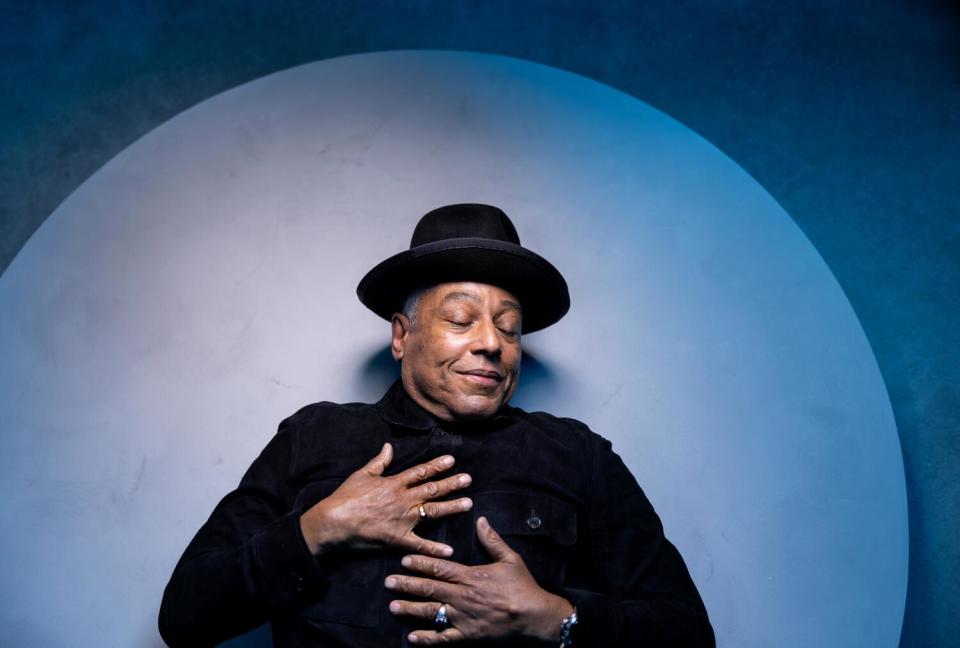
Ryan: I feel like the closest [to that experience] on film — I love when they put up two cameras and do coverage [of both actors] at the same time. Because then I'm like, "OK, we're in this together, right?"
Erskine: Can I ask a question? Has anyone ever had an actor — not to call out anyone — but had an actor, once it wasn't their coverage, totally turn off?
Esposito: I've had an actor leave.
Spector: I've had actors put their stand-ins in.
Esposito: Yeah, just say, "I'm gonna see you." And I was there for their side, and they just leave on my side. And at that time, I was a less established actor and didn't feel like I could ask. I've since learned that really respectful actors, truly respectful actors say, "Would you like me to stay?" I never ask to leave because there will be an imbalance on each side. It's weird when that does happen because I try to say, "Well, by you not being there, that affects my performance and will eventually, in turn, reflect on yours."
Maya, it feels like you asked because—
Erskine: Because I have a famous story in my head of someone having a stand-in once, and I think it was a big actor, and the stand-in would just go, "Peas and carrots, peas and carrots, peas and carrots." And wouldn't say the line even.
Jess Hong: I didn't have peas and carrots, but I did have someone [stand] in for the emotional closeup. This actor was tired and went away for a nap, so the third assistant director, who was lovely but a totally different vibe, [stepped in]. She's like, northern English and is just reading out these lines that are supposed to be really tender. It was sweet. She did try.
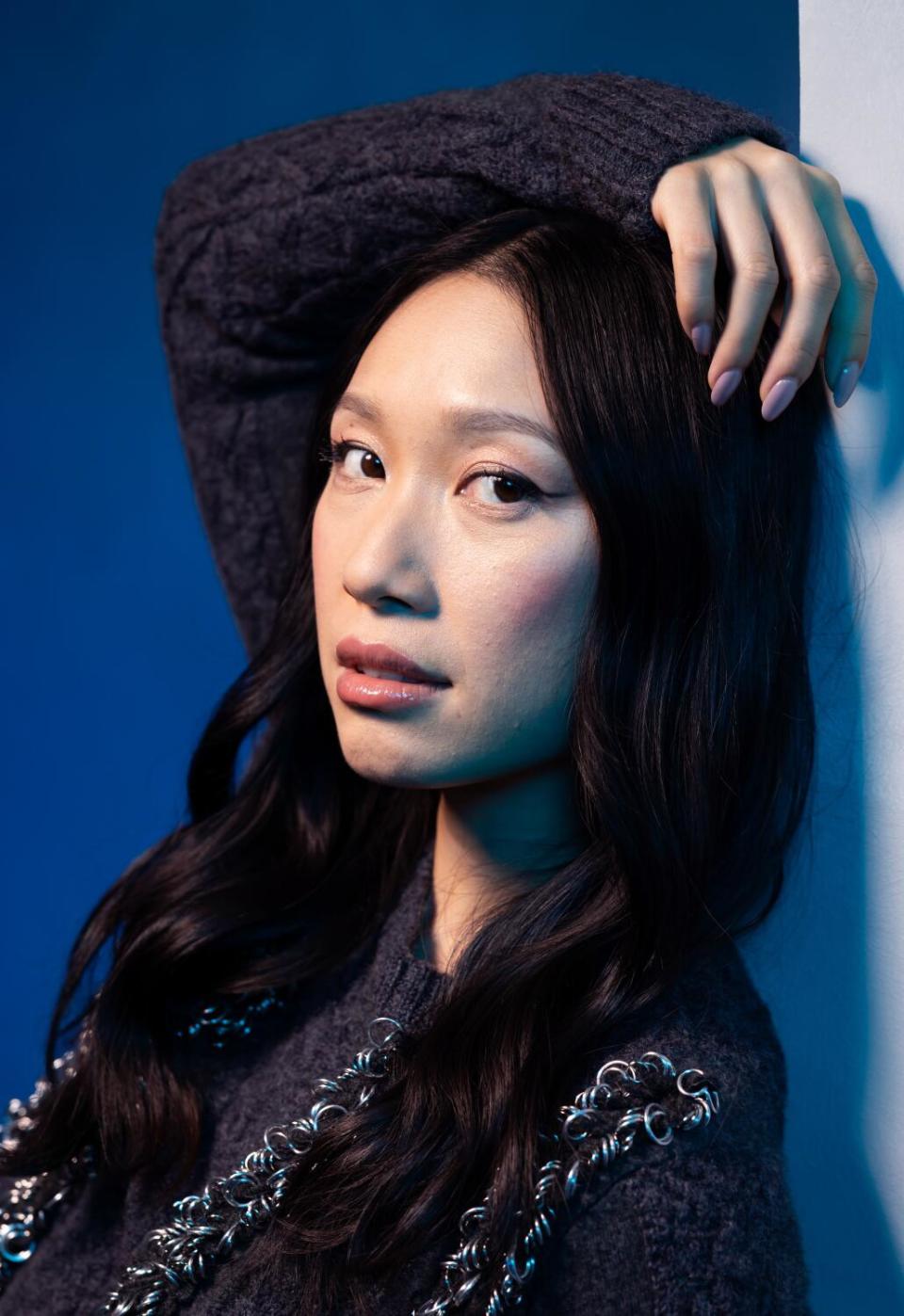
Jess, before "3 Body Problem," you were doing kids' theater in New Zealand. Tell me about getting that call, "You're gonna be on the show from the creators of 'Game of Thrones.'" How did that prep you for doing work in front of a blue screen?
Hong: Nothing can prepare me for that. They don't have that class in drama school. Yeah, so I was on this yearlong tour with this charity, Duffy Books in Homes, and we went to underprivileged schools around the country. So I went to some of the most beautiful parts of New Zealand. I got to see places that I never would have seen, very spiritually fulfilling. Age 5 to 12-year-old kids. For some of them, they've never seen theater, they have no idea.
What was great was that having that job, which was incredibly nourishing for my soul and a great distraction from that call, meant that I wasn't so caught up in, "Oh, I really hope this happens. I really want this." I wasn't thinking so intensely about that. Then I go into cold London [to shoot "3 Body Problem"]. I don't see sun for 10 months, I go straight into studio stuff. Nothing can really prepare you for walking onto a soundstage. I've never worked on a soundstage before.
Walking into a giant warehouse, and there's hundreds of people there, and they all know my name. "Hey, Jess. Morning, Jess." And I'm like, "I haven't met any of you. OK, cool." All eyes [are] on you, so you do feel that pressure spike up: "I have to do well, but I can't just do well, I can't just do the perfect thing, I have to be free. How do I be free inside this very structured space?" That was a real learning curve, trying to figure out how to find spontaneity and that spark even though you have to match the exact same thing and move your hand like this [demonstrates] at that time because that's what matches the wide shot.
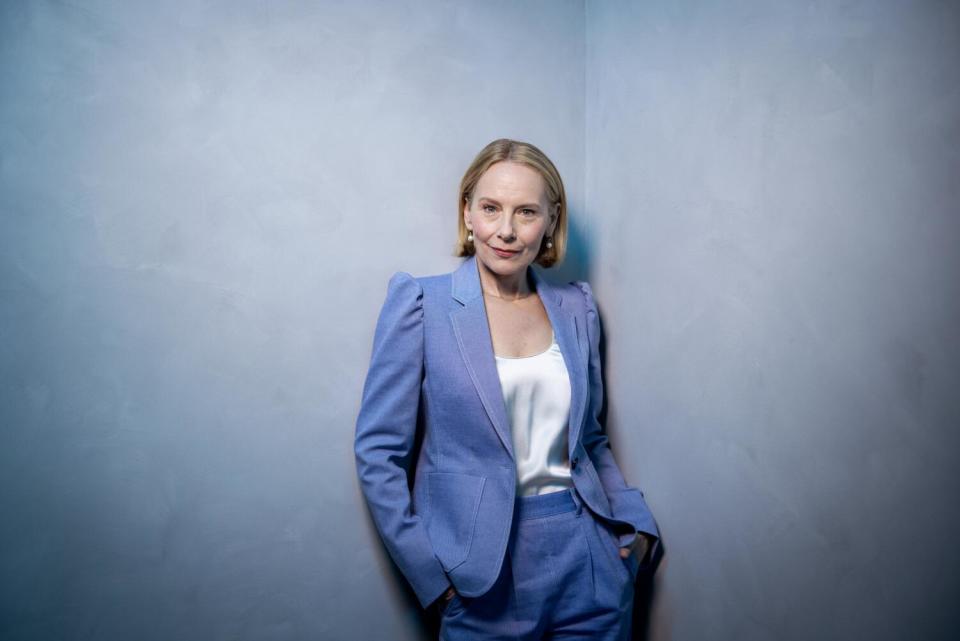
Last year will be remembered as a critical turning point in Hollywood because of the dual strikes we saw from writers and actors. How will you remember that period of time?
Ryan: AI scares the bejeezus out of me, and I know it's probably too late in so many ways, but when that happens, I'm like, "I'm out." I'm gonna find something else to do. I don't want to be replaced by [a digital double]. But too many people were hurt.
Did it make you more conscious of the business particulars or the fine print? So often you just want to focus on the creative, but it feels like now more than ever we need to pay close attention to the business side of things.
Spector: I am sort of interested in the business stuff anyway, just because I feel like it drives a lot of what ends up happening with us. Like you were saying, [Amy, people think], "Oh, precious actors, what are they whining about?" But I feel like we had public support really solidly throughout, partly because I think unions are more popular than they've ever been. Everybody's realizing how unequal and unfair our economic moment is. And that if they don't have the power to negotiate collectively, if they don't have solidarity, they're going to get screwed, and I think everybody kind of saw the actors' and writers' strikes, really, as a kind of inspiring thing.
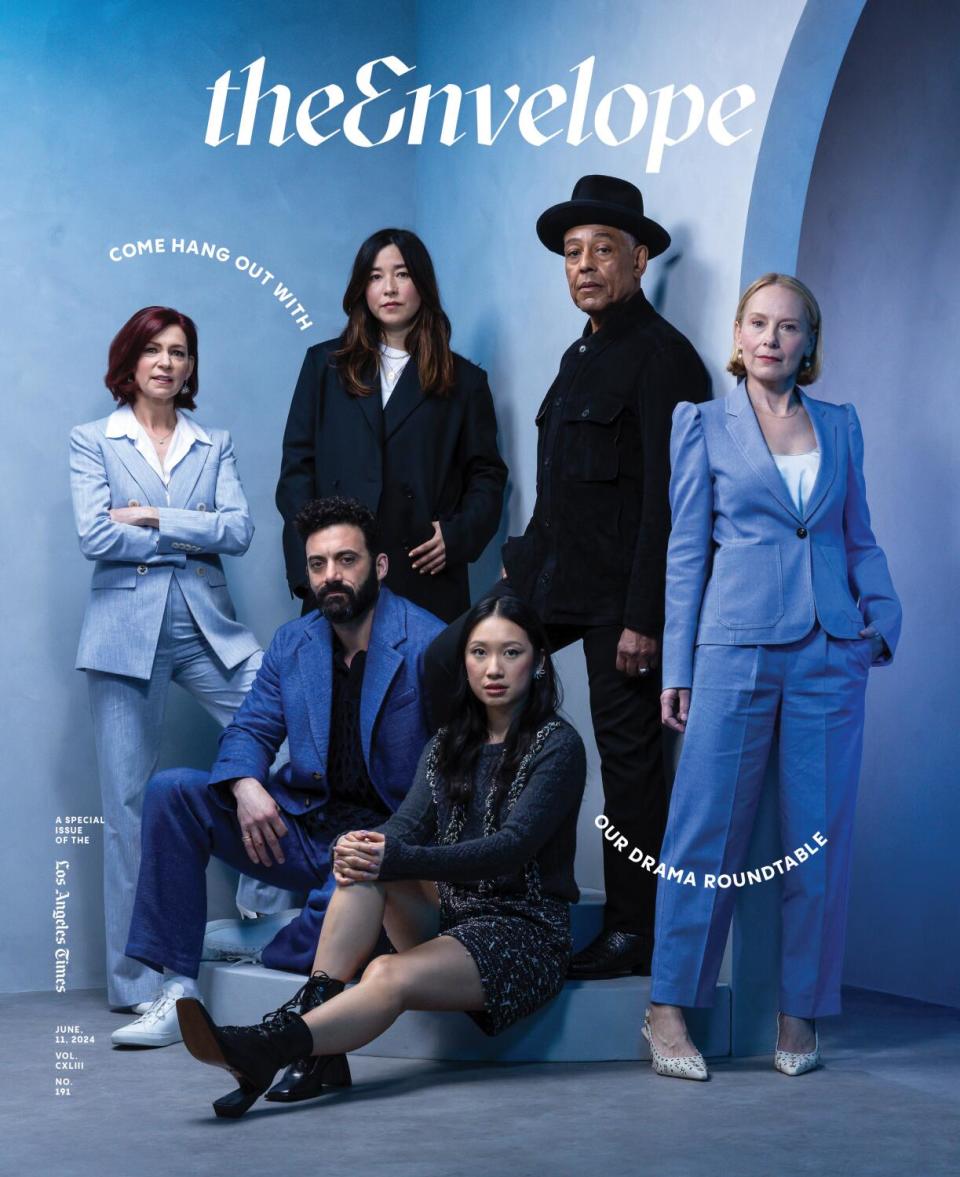
This story originally appeared in Los Angeles Times.
